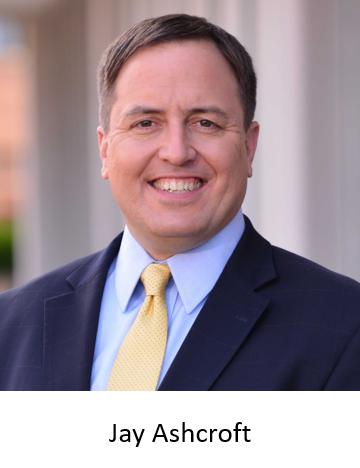Woke Marijuana Meets CRT:
Missouri’s Amendment 3 Includes a Hidden Agenda
A proposed amendment to the Missouri State Constitution would embed Critical Race Theory (CRT) into that document, along with the potential to enshrine other far-left agenda items such as unrestricted abortion and radical LGBTQ+ indoctrination programs, all without the knowledge of the vast majority of citizens.
The alleged purpose of the Marijuana Legalization Initiative (Amendment 3) is to expand the use of medical marijuana — legal in Missouri — to include recreational marijuana. But Dr. Mary Byrne tipped off Education Reporter about the amendment’s hidden agenda during her September 17 presentation at the Phyllis Schlafly Eagles’ annual Eagle Council event and later as a guest on Phyllis Schlafly Eagles President Ed Martin’s September 26 Pro America Report.
Dr. Byrne is an education expert with a master’s degree in curriculum and instruction, and a doctorate in special education. She explained that Amendment 3 has little to do with marijuana and lots to do with pushing a far-left agenda in Missouri communities via the state constitution. She says Amendment 3 presents “a new path” for getting around parents who complain at school board meetings and for bypassing state legislatures that enact laws prohibiting CRT and transgender grooming in schools.
Supporters of Amendment 3
Byrne and others report that there is a cast of left-wing characters behind the creation and promotion of Amendment 3. Dubbed “the Woke Industry Players” by the Missouri Constitutional Conservatives PAC, pushers of Amendment 3 include Karin Chester, a.k.a. Karin Spinks, former vice president of the Missouri Medical Cannabis Trade Association, SWADE cannabis dispensaries, the California-based Jane’s Dispensary, the cannabis products manufacturer Clovr, and GOOD DAY FARM, a marijuana-growing enterprise that operates multiple locations in Arkansas and Missouri.
In addition to promoting the unrestricted use of marijuana, each of these “players” appears steeped in pro-abortion and LGBTQ+ activism. As the Constitutional Conservatives PAC states: “[L]et us be clear — this is not about cannabis (marijuana). It’s about extreme leftists cornering a market that funds their destructive agendas.
“These entities are actively pushing, promoting, and funding the trans narrative that many see as an attempted grooming of adolescents. Many are also on board with defunding the police, as well as fighting to make abortion a constitutional right in Missouri.” The PAC goes on to explain that Chester “is heavily active in the medical marijuana industry and is also working to bring an initiative petition to Missourians that would add abortion to the Missouri Constitution as a protected right.” Last June, following the Supreme Court’s decision to overturn Roe v. Wade and using the name Karin Spinks, Chester posted the following on Twitter: “I need a lady lawyer than can help write an initiative petition to constitutionally legalize abortion in Missouri. Who wants to help??? This cannot be allowed to stand. PERIOD.”
Jane’s Dispensary, CLOVR, and SWADE all actively promote the transgender community and its initiatives, and they help in fundraising for “trans causes.” CLOVR and SWADE “sponsored The World Naked Bike Ride which is an excuse for overly sexualized individuals to ‘bare it all’  under the guise of ‘cyclists awareness’ and protest against combustion vehicles because of their supposed detriment to the environment (climate change mixed with sexual deviancy).”
under the guise of ‘cyclists awareness’ and protest against combustion vehicles because of their supposed detriment to the environment (climate change mixed with sexual deviancy).”
With 25 medical marijuana licenses in Missouri worth $75 million, Good Day Farm not only cultivates cannabis but is a supporter of The Center Project, an organization operating in mid-Missouri that “works strategically to create LGBTQ+ programming for public consumption, along with creating initiatives and outreach programs to indoctrinate communities with the dogma of the Left.”
As Dr. Byrne explains, the strategy of these groups is “buy the ballot with money; bypass the legislature by abusing the petition initiative, and target certain counties” where there is a high likelihood of support. She adds that out-of-state organizations typically orchestrate and finance these types of initiatives, which would otherwise fail.
Joshua Lehman of Missouri RINO Watch bears out Byrne’s contention. He says George Soros “had his hand in the original medical marijuana initiative through his Drug Policy Alliance, and likewise with Amendment 3.” Lehman notes that Kansas City BLM activist, Justice Gatson, of the “Reale Justice Network,” the ACLU, and Empower Missouri, architects of the Defund the Police Movement in Missouri, “are all aligned on the passing of Amendment 3.”
What’s in Amendment 3?
Courtesy of Missouri Constitutional Conservatives
Amendment 3 asks voters to “remove state prohibitions on purchasing, possessing, consuming, using, delivering, manufacturing, and selling marijuana for personal use for adults over the age of 21.” It will require a license for “personal cultivation with prescribed limits” and “allow persons with certain marijuana-related non-violent offenses to petition for release from incarceration or parole and probation, and have records expunged.” It will “impose a six percent tax on the retail price of [recreational] marijuana.”
The entire amendment is 38 pages long and suggests an agenda that won’t appear on the November ballot. The Missouri Constitutional Conservatives PAC points out that “page 27 of Amendment 3 establishes a ‘chief equity officer’ to establish public education programming.”
Dr. Byrne, the Missouri Constitutional Conservatives PAC, RINO Watch, and other observers caution that the equity officer position “is not appointed by the governor with advice and consent of the Missouri Senate and therefore offers no representative oversight.” They note that this individual would be constitutionally mandated to produce CRT-aligned programming “that will perpetuate the false and divisive narrative that parents have fought so hard to remove from the schools, under the guise of helping minorities get into this very limited and restricted industry.”
As these concerned groups and individuals point out “why create a constitutional prohibition on our conservative lawmakers” in Missouri, who should rightly be able to exercise oversight of any actions or activities conducted by the state’s executive branch? The above-quoted section of the full amendment also states: “No elected official shall interfere directly or indirectly with the department’s obligations and activities under this section,” and that the chief equity officer cannot be fired without “cause,” nor can his or her “lawful official activities” be interfered with “by the department.”
New strategy by the Left?
Missouri’s Amendment 3 may not be the only example of an attempt to modify a state constitution to further leftist goals that most citizens and elected officials would not support through legislative means. Conservative citizens and political leaders should take heed and examine the full text of any ballot initiatives that appear through the signature-gathering process. Legitimate signers of such petitions are often only informed of the portion that is likely to garner widespread appeal, without disclosure of the initiative’s actual and/or hidden intent.
Citizens must be especially alert if, as some observers believe, this is a new strategy by the Left to achieve their goals. Once these initiatives are embedded in state constitutions, they could be very difficult if not impossible to remove.
The harmful effects of pot
Aside from its hidden intent, the premise of Amendment 3 that the recreational use of marijuana is a good thing, is gravely flawed. Volumes have been written about the dangers of cannabis use, from the well-documented negative effects in Colorado and California following legalization of the drug in those states in 2014 and 2015 respectively, to Alex Berenson’s compelling 2019 book, Tell Your Children: The Truth About Marijuana, Mental Illness, and Violence, which Education Reporter reviewed.
 In February 2019, Education Reporter provided details of a report by Colorado Christian University which showed that “taxpayers in that state spent $4.57 for every dollar” the drug generated due to the costs associated with marijuana use. In separate reports following Colorado’s legalization of recreational marijuana, researchers found an increase in traffic accidents caused by drivers operating under the influence, an increase in emergency room visits, and increases in violent behavior and mental illness among users.
In February 2019, Education Reporter provided details of a report by Colorado Christian University which showed that “taxpayers in that state spent $4.57 for every dollar” the drug generated due to the costs associated with marijuana use. In separate reports following Colorado’s legalization of recreational marijuana, researchers found an increase in traffic accidents caused by drivers operating under the influence, an increase in emergency room visits, and increases in violent behavior and mental illness among users.
The National Institute on Drug Abuse reports that marijuana has both short- and long-term effects on the brain, and that the active ingredient THC “acts on numerous areas in the brain.” These effects include altered senses and sense of time, mood swings, and impairments in body movement, thinking, and memory. Additionally, hallucinations, delusions, and psychoses occur with higher doses. In young people, studies show ongoing marijuana use can cause “an average loss of eight IQ points between ages 13 and 38. The lost mental abilities didn't fully return in those who quit marijuana as adults.”
The physical effects of marijuana smoke include lung irritation and breathing problems similar to those of cigarette smokers, and users may experience elevated heart rate levels for up to three hours after smoking. Other physical effects include nausea and vomiting.
The unborn children of pregnant women who smoke marijuana also experience negative effects. After birth, levels of THC have been found in the breast milk of smoking mothers that are high enough to negatively impact the brain development of their infants.
The solution: Educated Voters
With so many obvious negatives, why would voters support Amendment 3? One answer is that they are not getting the whole story, and the news media is unlikely to offer an unbiased, in-depth assessment of this initiative.
For example, the St. Louis Post Dispatch on October 5 decried the Missouri Constitutional Conservatives PAC as “falsely” claiming that Missouri’s “marijuana measure advances ‘critical race theory.’” They say the amendment “doesn’t mention any race as a criteria to qualify for a marijuana microbusiness license.” However, the very title of “chief equity officer” indicates, per the rhetoric of the progressive left itself, that the amendment will mandate a focus on race.
The qualifications listed for microbusiness applicants speak for themselves, and each applicant must meet at least one. These include “a net worth of less than $250,000 and meeting lower-income requirements; having a service-connected disability card from the U.S. Department of Veterans Affairs; being arrested or prosecuted, or having a close relative arrested or prosecuted, for certain nonviolent marijuana offenses; residing in a ZIP code or census tract that meets certain conditions; graduating from an unaccredited school district, or living in a ZIP code with an unaccredited school district for three of the last five years.”
According to Front Line magazine’s October 1 voter’s guide edition, Secretary of State John R. (Jay) Ashcroft suggested that voters take care when deciding the fate of Amendment 3. “I encourage Missourians to study and educate themselves on any ballot initiative ... Amendment 3 is particularly lengthy and should be given careful consideration.” [Emphasis in the original.] Voters would be wise to heed his advice before the November election.
Want to be notified of new
Education Reporter content?
Your information will NOT be sold or shared and will ONLY be used to notify you of new content.
Click Here
Return to Home Page
